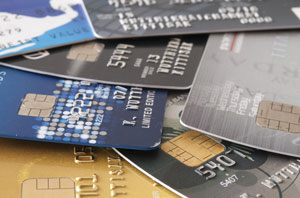Chargeback Fraud Survival Guide for Drilling Contractors
Credit card holders can rightly use chargebacks to dispute purchases. But in the hands of fraudsters, chargebacks can leave a contractor holding the bag for thousands of dollars in bogus charges — and out expensive inventory.

|
| When contractors process credit cards over the phone or the Internet, experts recommend getting as much information as possible about the person using the card, as well as taking time to verify that information. |
It happened to National Driller columnist Howard “Porky” Cutter. He shipped equipment bought with a stolen credit card, then was stuck with the bill when the actual owner of the credit card disputed the charges. After he wrote about his experience for our December issue, more drillers shared with us that they, too, had fallen victim.
National Driller reached out to the FBI as well as Markus Bergthaler of the Merchant Risk Council for tips on how to prevent chargeback fraud and what to do if you’ve been stung.
Preventing Chargeback Fraud
It isn’t possible to completely diminish the chances of falling victim to unfair chargebacks. Anyone who accepts credit or debit cards is at risk, but there are steps that can be taken to lower the chances of it happening.
It’s helpful to obtain as much information about a consumer as you can, especially when they aren’t making the transaction in person. The FBI suggests documenting their name, address, email address, phone number and IP address. Don’t hesitate to do a simple Google search. You might end up finding the identity, or portions of it, along with the card information, on a black list.
Another thing to pay attention to is whether the ship to and bill to addresses match. In the case of a stolen credit card, they won’t.
The FBI suggests going so far as to share customer information with others in the drilling industry in an organized fashion. If every drilling contractor in a given area saves information from transactions, with fraudulent chargebacks flagged, they all can benefit from reviewing the data. Say one driller gets hit by chargeback fraud, highlights the set of information used by the scammer and adds it to a master list. Now other local contractors will know not to do business with a customer using all or some of that information.
Bergthaler says authenticating a buyer prior to shipping an item is always a good idea. If the customer’s information checks out, you can ship the item and charge the card with minimal chances of falling victim to fraud. If the information seems shady, the transaction can be cancelled and you can refrain from shipping.
All in all, more precautions should be taken when business isn’t being done face-to-face. “Online people are anonymous,” Bergthaler says. “It just makes it a lot easier for a person to commit fraud doing it that way because people don’t feel directly responsible.”
When doing business in person, you can match the customer’s ID to the card they present, which will rule out fraudsters most of the time.
Fighting Chargebacks
While preventative steps can be helpful, they can’t promise the impossibility of falling prey. “It’s really hard to identify or prevent the onset,” an FBI spokesperson says. “I think each company’s always going to have a chargeback problem at some point, and maybe it’s a huge problem, maybe it’s not at all.”
The first question to consider after receiving an unfair chargeback is whether or not to fight it. After all, the process can be time consuming and time is money.
In a case where a stolen credit card was used and the cardholder rightfully disputed the charge, the blame is bound to fall onto the shoulders of the business for accepting a stolen card. “If a merchant is under the impression that it actually is a fraudulent purchase, fighting the chargeback might not be the right thing to do just because the likelihood of actually winning that is very, very small,” Bergthaler says. It’s best to try and avoid this scenario altogether through precautionary vigilance before the purchase is made.
The FBI recommends that drillers who believe they’ve experienced chargeback fraud inform local law enforcement. Victims of online chargeback fraud are also urged to file a complaint with the Internet Crime Complaint Center at www.ic3.gov. Cases stored in the database are used by law enforcement for any investigation they deem to be appropriate.
Ending up in a predicament where you’re left deciding if and how to fight a chargeback should be avoided if possible. Bergthaler says that the best you can do is cover yourself on the front end and take as many preventative steps as possible. For more information regarding online chargeback fraud and how to address it, go to www.merchantriskcouncil.org.
Valerie King is associate editor of National Driller.
Looking for a reprint of this article?
From high-res PDFs to custom plaques, order your copy today!




